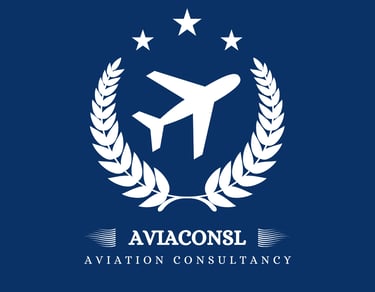Legal Disputes in Travel Agencies: Who Bears Responsibility
the Agent or the Carrier?
The travel and tourism sector is one of the most legally sensitive industries, where contracts frequently involve multiple parties, including travel agencies, airlines, hotel service providers, and transportation companies. This complex contractual nature makes it challenging to determine responsibility when an issue arises, leading to legal disputes that can be costly and prolonged. Among the most common disputes are those related to flight cancellations or hotel service failures, non-compliance by carriers or service providers, and compensation claims for damages incurred by customers.
The Legal Dilemma: Who Is Responsible for Service Failures?
When a customer books a trip through a travel agency, they often believe they are dealing directly with the agency as the service provider, whereas, in reality, the agency merely acts as an intermediary between the customer and the carrier (such as airlines, cruise lines, or bus companies) or hotel providers. However, when a contract breach occurs—such as a canceled flight, unexpected changes to travel itineraries, or errors in hotel bookings—the question of legal responsibility arises: should the travel agency be held accountable, or does liability fall on the airline or service provider?
Under the laws regulating the tourism sector in the United Arab Emirates, a travel agency is considered an agent for the customer rather than a direct contracting party with the carrier. According to Federal Law No. (1) of 2007 on Tourism Establishments and Their Regulations, travel agencies are required to act professionally and honestly in delivering their services but are not automatically liable for errors made by carriers or hotel providers unless the agency has failed in its duties or misrepresented the terms of the service.
1. Flight Cancellations or Itinerary Changes Without Compensation
One of the most common disputes between travelers and travel agencies involves flight cancellations or route modifications without proper compensation. Many travelers pay significant amounts for special fares or premium bookings, only to later find out that their flight has been canceled or rescheduled without fair reimbursement. In such cases, customers often turn to the travel agency that issued the ticket or organized the trip, only to be told that the agency is not responsible and that liability lies with the airline.
Legal Position in the UAE:
The liability of airlines is governed by the Montreal Convention of 1999, which places restrictions on airline liability for delays and cancellations while setting compensation limits for passengers. Travel agencies, on the other hand, are not responsible for cancellations or changes imposed by airlines unless they sold non-refundable tickets without informing the customer, or misrepresented the cancellation and refund policies.
However, the UAE General Civil Aviation Authority (GCAA) has issued directives requiring airlines to provide alternatives or appropriate compensation for passengers in cases of cancellation or long delays. Therefore, travel agencies should ensure that their customers receive their entitled rights from the airlines, but they are not directly liable for enforcing such rights.
2. Hidden Fees and Unclear Pricing Practices
Some travel agencies face legal claims due to a lack of transparency in pricing or the imposition of undisclosed fees on travelers. Agencies may add "administrative" or "service" charges to bookings without clearly informing customers, leading to disputes—especially when these charges are not explicitly stated in the contract.
UAE Law and Travel Agency Obligations:
Pricing and transparency practices in travel agencies are governed by Federal Consumer Protection Law No. (15) of 2020, which requires service providers to disclose all additional costs before completing a transaction. Under this law, customers can file complaints against travel agencies with the Ministry of Economy or the Department of Economic Development in the emirate where the agency operates, which may result in fines or even license suspension if a violation is confirmed.
3. Failure to Deliver Hotel or Transportation Services as Promised
A common issue in travel disputes involves cases where the actual services provided do not match what was agreed upon in the contract. A customer may book a luxury hotel room only to arrive and find themselves placed in a lower-category room. Similarly, a private transport service may be replaced by a shared shuttle without prior notice.
Legal Responsibility in the UAE:
Under UAE federal law, travel agencies are responsible for ensuring the accuracy of the information they provide to customers regarding booked services. If an agency knowingly misrepresents a service, fails to verify a booking, or provides misleading information, it may be held liable for damages. However, if the travel agency properly conveyed the terms of the service and the failure was caused by the hotel or service provider, then the customer must claim compensation directly from the responsible entity, not the agency.
How Travel Agencies Can Minimize Legal Disputes
To protect themselves from potential legal claims, travel agencies should implement precautionary measures to reduce disputes, including:
Clearly defining terms and conditions in contracts with customers, including cancellation, modification, and refund policies.
Ensuring transparency in pricing and avoiding any hidden or undisclosed charges before booking confirmation.
Documenting agreements with service providers such as airlines and hotels to ensure the agency is not held accountable for external service failures.
Providing alternative solutions to customers when issues arise, such as rebooking options or negotiating compensations with airlines.
Using written contracts with customers to protect the agency from disputes resulting from misunderstandings or unrealistic expectations.
Legal disputes between travel agencies and their customers will never be entirely eliminated, but by adhering to laws and regulations, maintaining full transparency, and taking proactive measures, agencies can significantly reduce conflicts and foster stronger customer trust.




